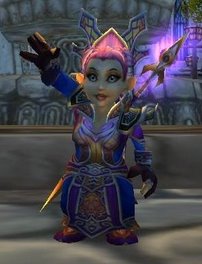But when it comes to his review of Harry Potter and the Order of the Phoenix, he is completely off. I just saw the movie last night, and I loved it. I thought it was the best of the series. The opening sequence when Harry is attacked by dementors is completely amazing. And the flashbacks/dreams that Harry has throughout the movie are just snippets of scenes, rather than fluid narratives, giving them a frantic, unsettling feeling. The lighting is fantastic, and overall, the movie completely lives up to the darkness of the book (something that I hoped it would). There is a lot that gets left out, but director David Yates has skillfully chosen those scenes that don't matter quite as much to the development of the plot. And, dare I say it, I liked the climax in the Ministry of Magic more in the movie than I did in the book--I think it makes Harry more of an active hero than he is in the books, which is something I really hope Rowling addresses in book 7. At any rate, I loved the film, and I'm thrilled that Yates is on board to direct the next installment.
That said, what does Ebert get wrong? Partly frustrating is that Ebert seems to miss the point of a scene early in Order, in which Harry gets attacked by dementors and then is nearly expelled from Hogwarts for using magic as an underage wizard. Ebert writes, "An early scene illustrates this change. Harry and his cousin Dudley are attacked by Dementors, and in desperation he uses a secret spell to defeat them. But that earns the disapproval of his superiors at Hogwarts, and he is threatened with expulsion, because the spell is not to be used in public around Muggles. What is it, like a secret Masonic grip? When you're about to get your clock stopped by Dementors and you know the spell, what are you expected to do? Fall over passively and get Demented?"
Ebert misses the fact that the whole underlying theme in this scene, and then later in Harry's trial, is that someone is conspiring to get Harry. As the book progresses, it becomes even more clear that this someone is within the Ministry of Magic itself. One of the very real powers of Harry Potter and the Order of the Phoenix is the political statement that it makes about the role of government and the press in a time of terror. Ebert asks about the connection between Harry Potter and the real world, but misses the solid connection that J.K. Rowling makes between the threat of Voldemort and threat of terror in the real world. He says, "That causes me to wonder, what is the practical connection between the world of magic and the world of Muggles? Will Harry, or should Harry, become a world leader? Can wands and spells be of use in today's geopolitical turmoil?" Such questions are interesting, but miss the even more interesting points that Rowling makes about a world in which terrorism rules the day.
These comments also seem to miss the point that Rowling has been building up to throughout the entire series. Every book gets progressively darker. She's leading up to an ultimate battle between good and evil. She's setting Harry apart as someone who is marked, someone who is destined to fight Voldemort. She's teaching about the necessity of sacrifice and loss in growing up. Without this progression, the series wouldn't go anywhere. It would just stand still, marking time. But by adding a dark side to Harry Potter, Rowling shows the complexity of life.
Even though the movie cuts out a lot from the book, this overall point still comes through in a big way. There are lots of characters who talk about Harry's destiny, and there's even an added speech (I think) by Sirius Black about how Harry's choices are what set him apart. But Ebert's comments still show that he's not paying close enough attention to what's actually going on in the movies, and what Rowling is building up to. It's much more significant than a world of whimsical magical pranks and staircases that move, and Ebert doesn't seem to understand that.
Rating for Harry Potter and the Order of the Phoenix: 4.5 stars out of 5

No comments:
Post a Comment